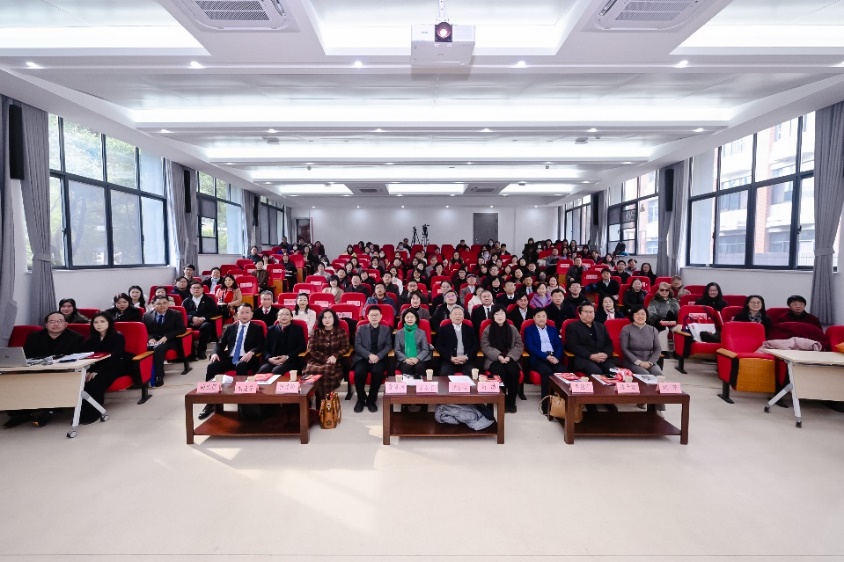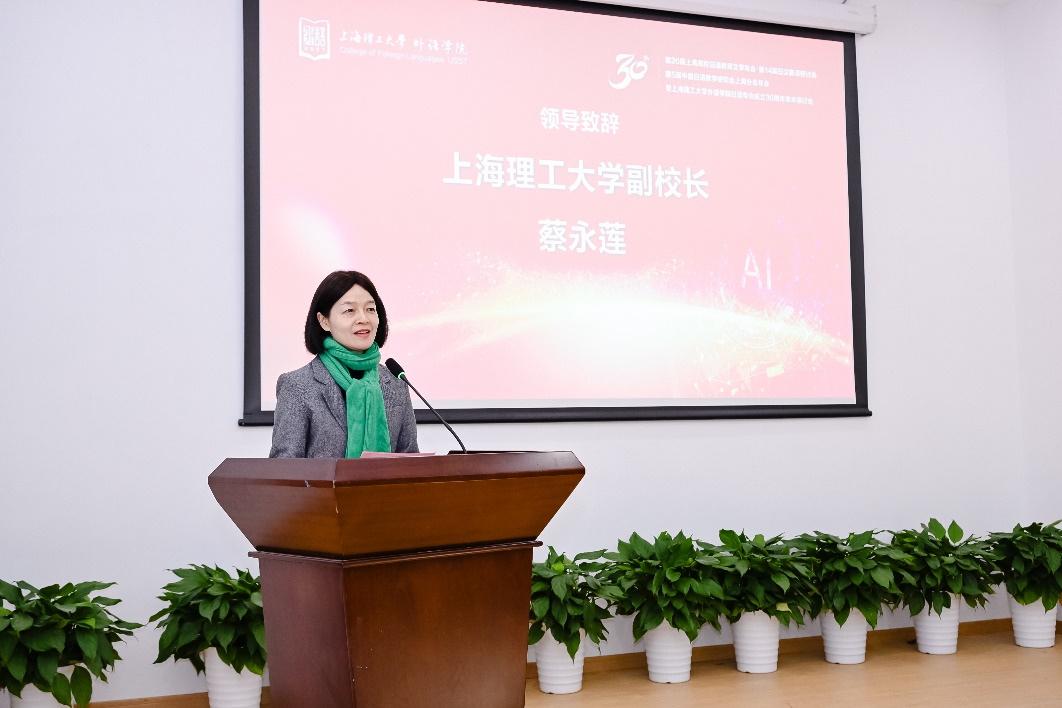On January 11, 2025, the College of Foreign Languages (CFL) held the 20th Shanghai Annual Literature Meeting for College Japanese Educators·the 14th Japanese-Chinese Translation Symposium·the 5th Annual Meeting of China Japanese Education Association (CJEA), Shanghai Branch, and the Academic Symposium on the 30th Anniversary of Japanese Discipline of CFL.
Held in CFL’s auditorium, the event was hosted by the CJEA Shanghai Branch and USST, co-organized by the CFL and sponsored by the Shanghai International Studies Association (SISA), Shanghai Association for Japanese Studies (SAJS), Senbazuru Japanese Language School, and Casio (China) Trading Co., Ltd.
The event brought attendees from associations, departments and over 30 Shanghai-based universities with Japanese disciplines. Besides, over 180 scholars from more than 50 universities in China gathered together to share their wisdom on the subject of “Opportunities and Prospects Facing Foreign Language Disciplines in the AI Era”.
Present at the meeting are Cai Yonglian, Vice President of USST; Tan Jinghua, Former Executive Vice President of Shanghai International Studies University (SISU); Liu Xiaofang, Vice President of the CJEA and President of its Shanghai Branch; and Chen Zilei, Vice President of the Chinese Association for Japanese Economic Studies and President of the SAJS as well as other distinguished guests and scholars.
The opening ceremony was presided over by Liu Qin, Dean of CFL. Vice President Cai highlighted USST’s multidisciplinary development and its commitment to talent cultivation, research, and societal engagement. She hoped that based on the three-decade development of the Department of Japanese, its faculty members can embrace the “AI+” era to align with national and municipal development goals, enhance science-oriented foreign language education, and strengthen China’s global narrative.
Speech by Vice President Cai
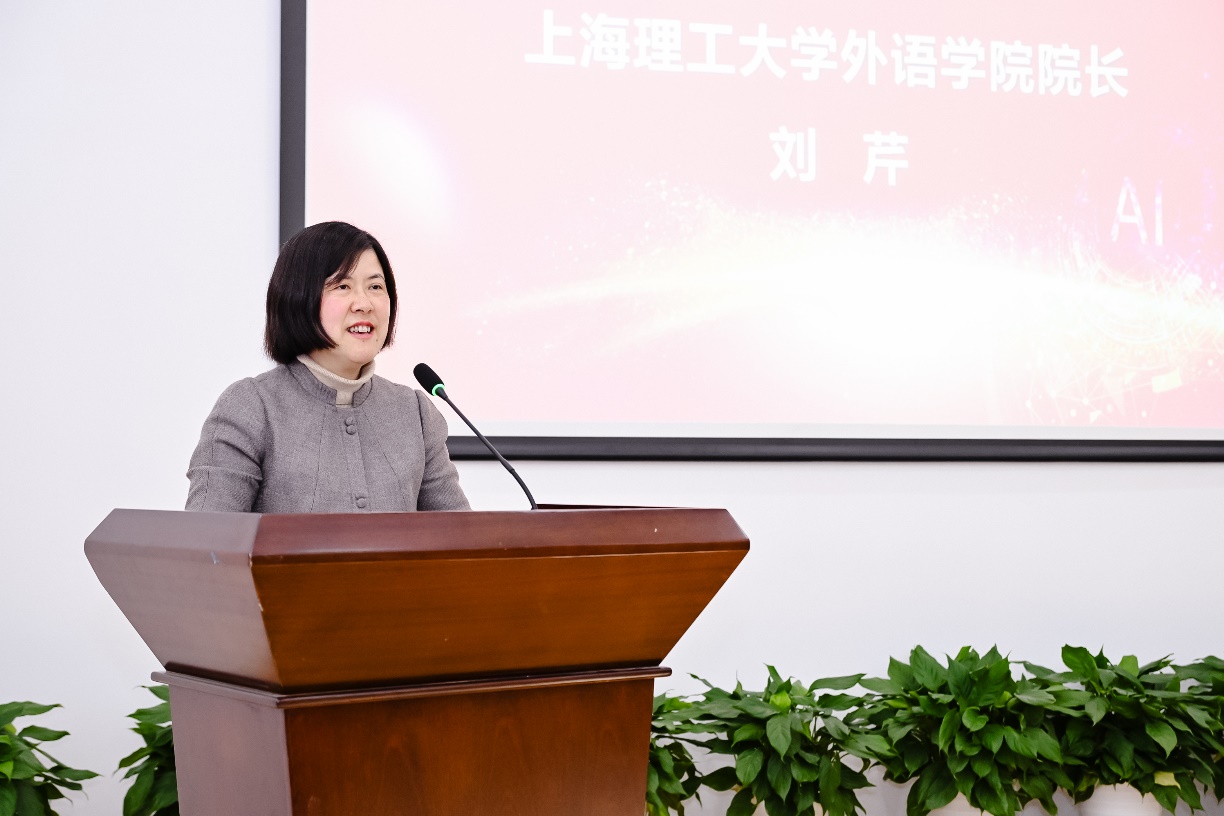
Opening Ceremony Presided over by Liu Qin
Liu Xiaofang, Vice President of the CJEA, emphasized collaboration among Shanghai scholars in academic publishing, international exchanges, and university-industry partnerships to elevate foreign language disciplines. Chen Zilei, Vice President of the Chinese Association for Japanese Economic Studies and President of the SAJS, underscored the synergy between AI and foreign language studies in driving “new quality productive forces” and advocating for tech-integrated talent development to support societal needs.
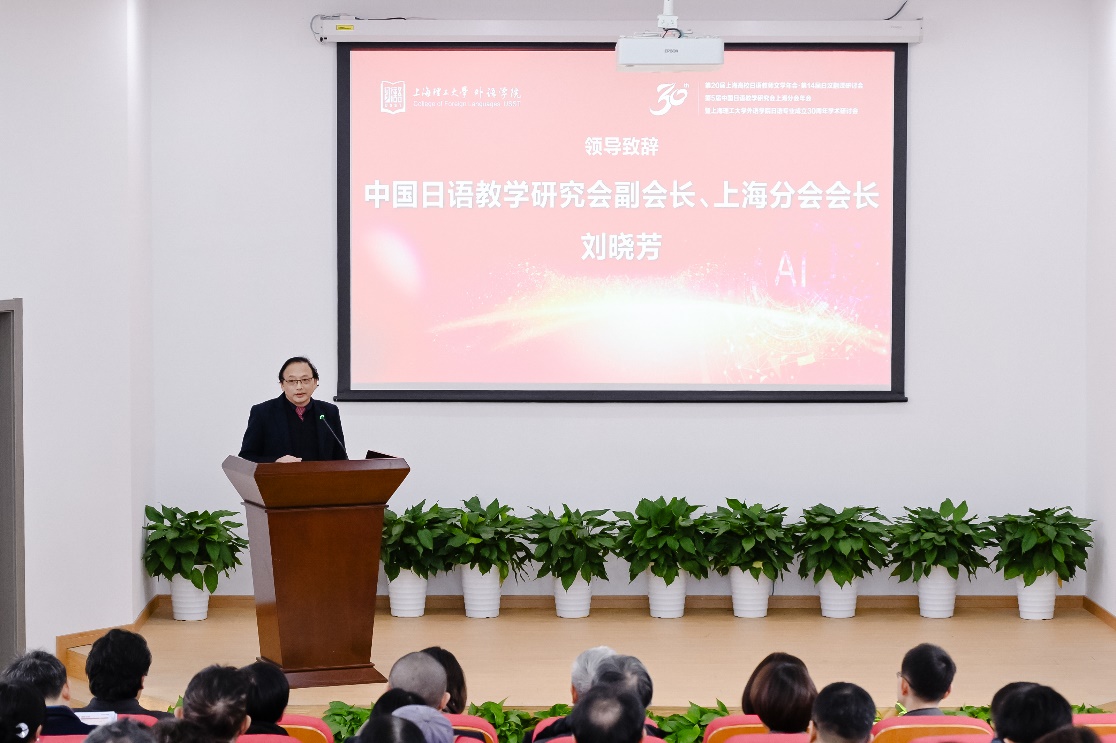
Speech by Liu Xiaofang
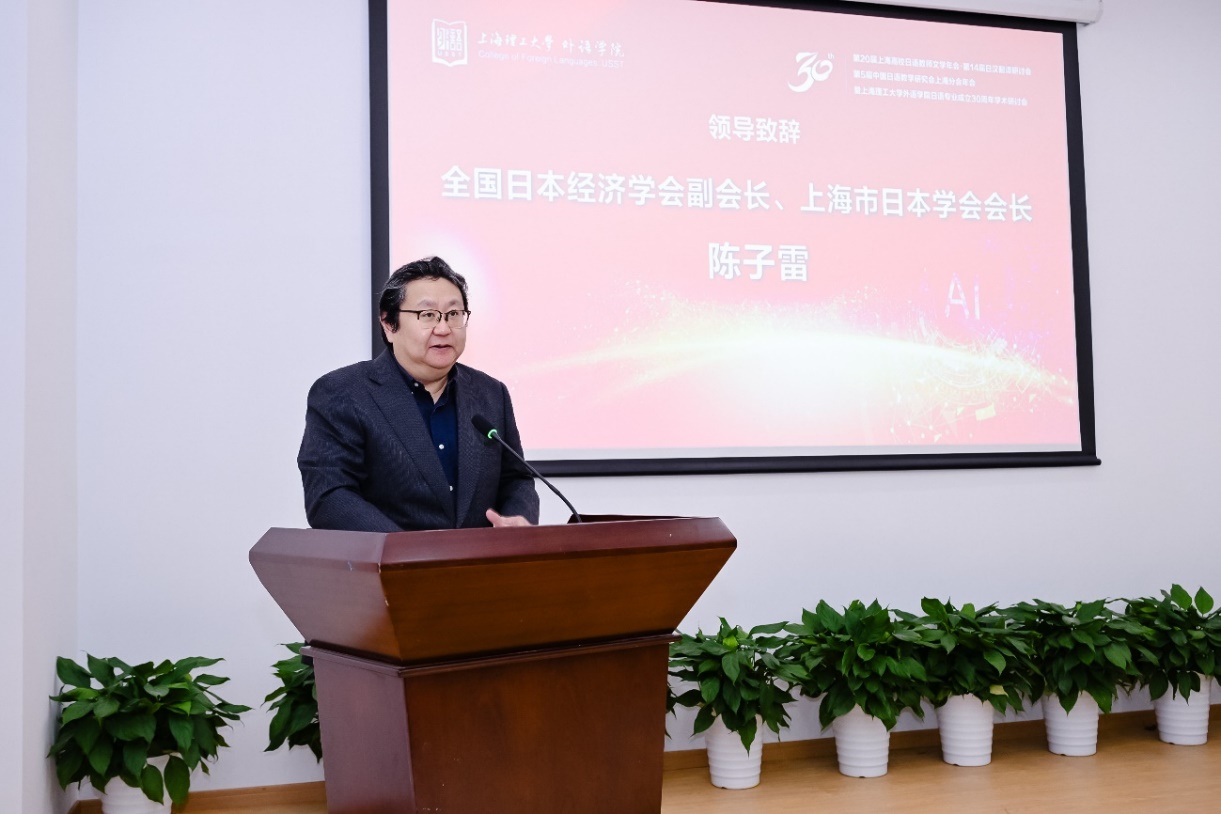
Speech by Chen Zilei
Qu Deqiang, Party Secretary of the Committee of the Communist Party of Chian (CPC) of the CFL, chaired the 30th Anniversary Awards Ceremony which honored those who contributed to the Japanese Department’s success.
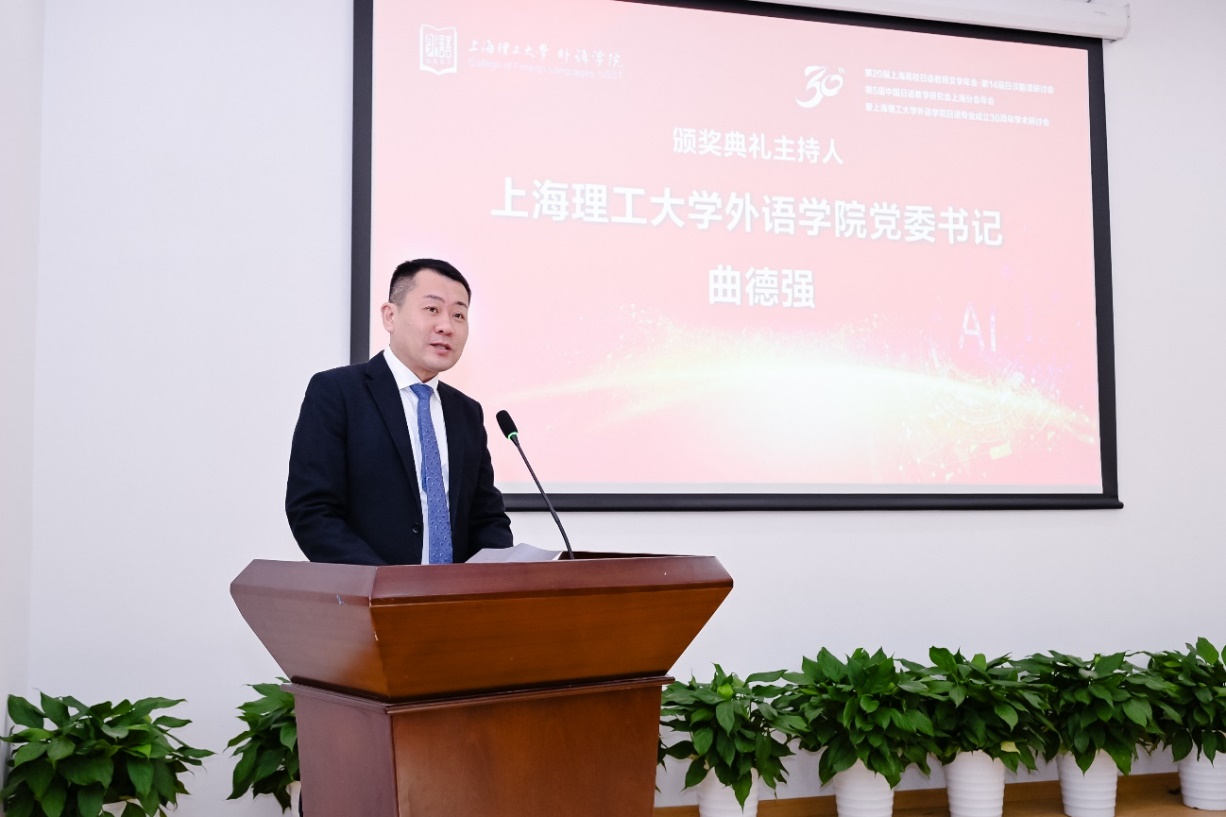
The Awarding Ceremony Hosted by Qu Deqiang
Outstanding Contribution Awards were presented to six educators, including Yang Yun (Principal of Shanghai Ganquan Foreign Languages High School), Wu Zijian (Former Principal of YK Pao School), Zhang Jiansong (Senior Correspondent of XINHUANET).Outstanding Educator Awards were bestowed upon four retired faculty members, Zhang Jitong, Zhang Lianqun, Zhang Wenbi, and Xu Pengyang. Distinguished Alumni Award was awarded to Wang Dan (Vice Principal of Shanghai Ganquan Foreign Languages High School), a graduate of the Department of Japanese.
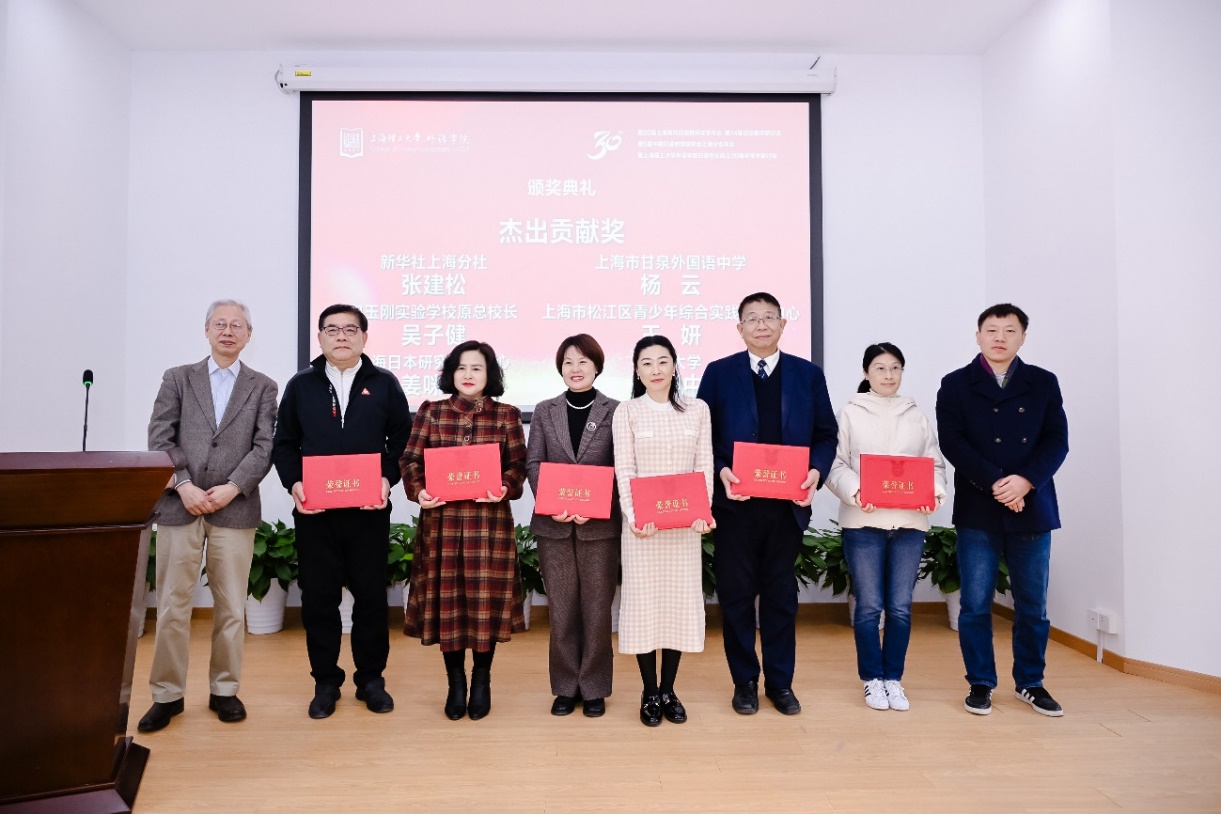
Outstanding Contribution Awards
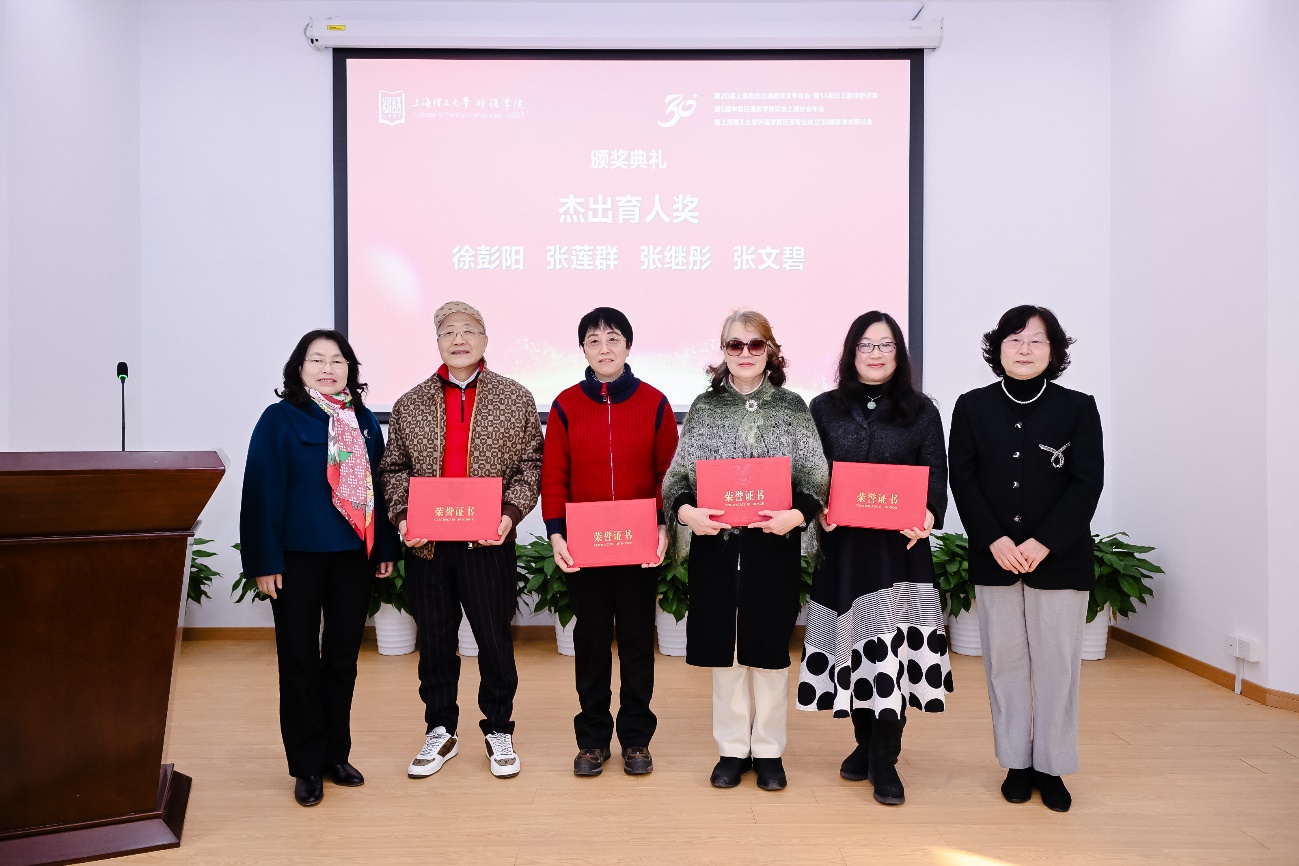
Outstanding Educator Awards
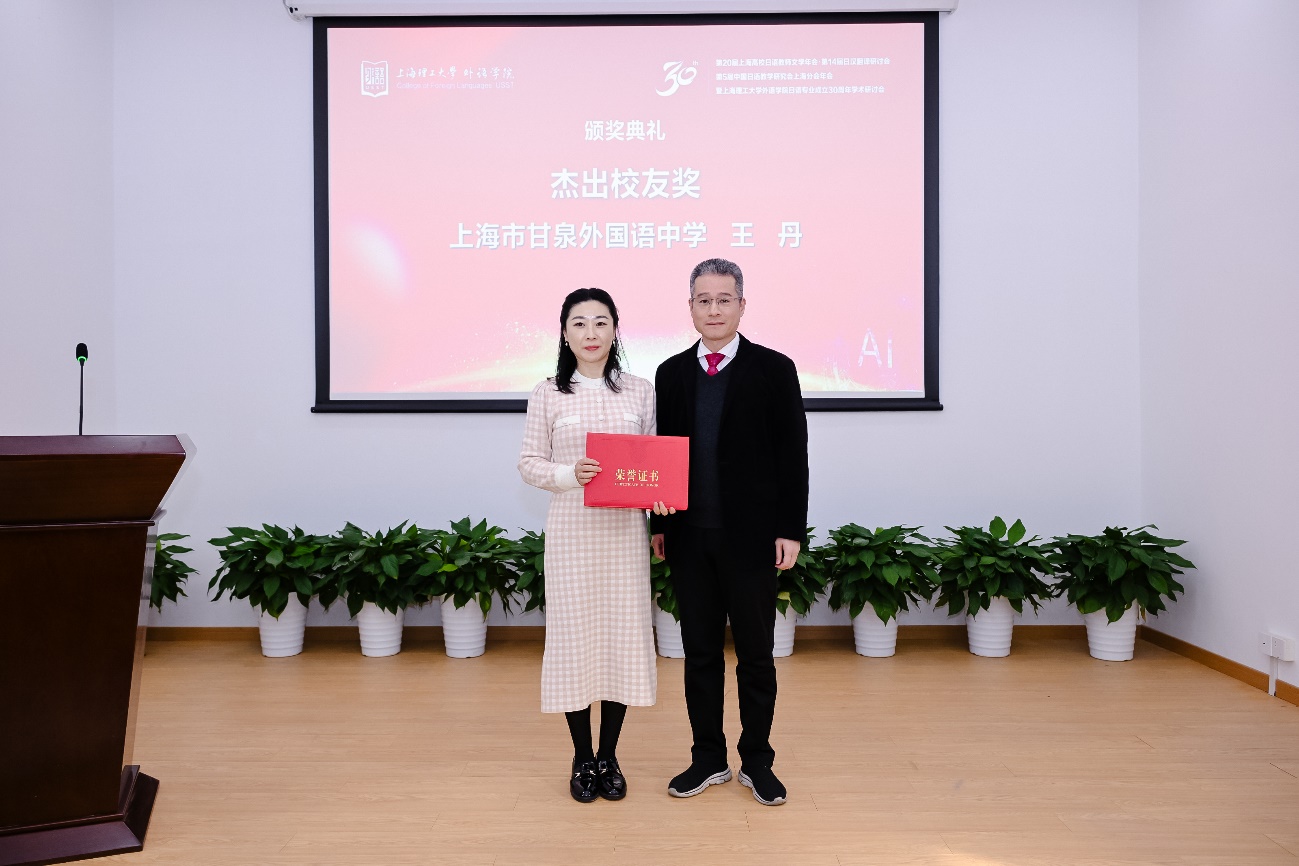
Distinguished Alumni Award
After the opening ceremony were keynote speeches and session discussions. The keynote speeches were moderated by Gao Jie (Vice President of CJEA and Dean of the School of Japanese Studies, SISU), Jiang Mihong (Head of Shanghai Japan Studies& Communications, SJSC) and Chen Yili (Director of International Students Office, Tongji University, TJU).
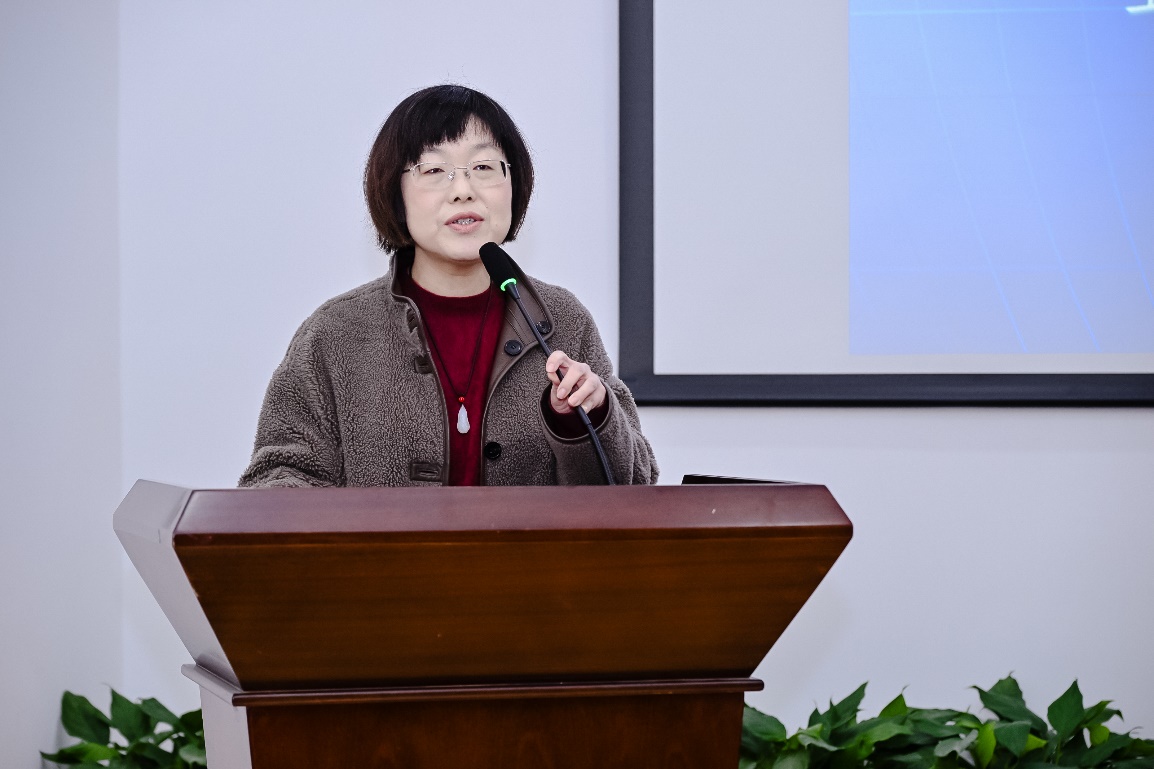
Keynote Speech by Gao Jie
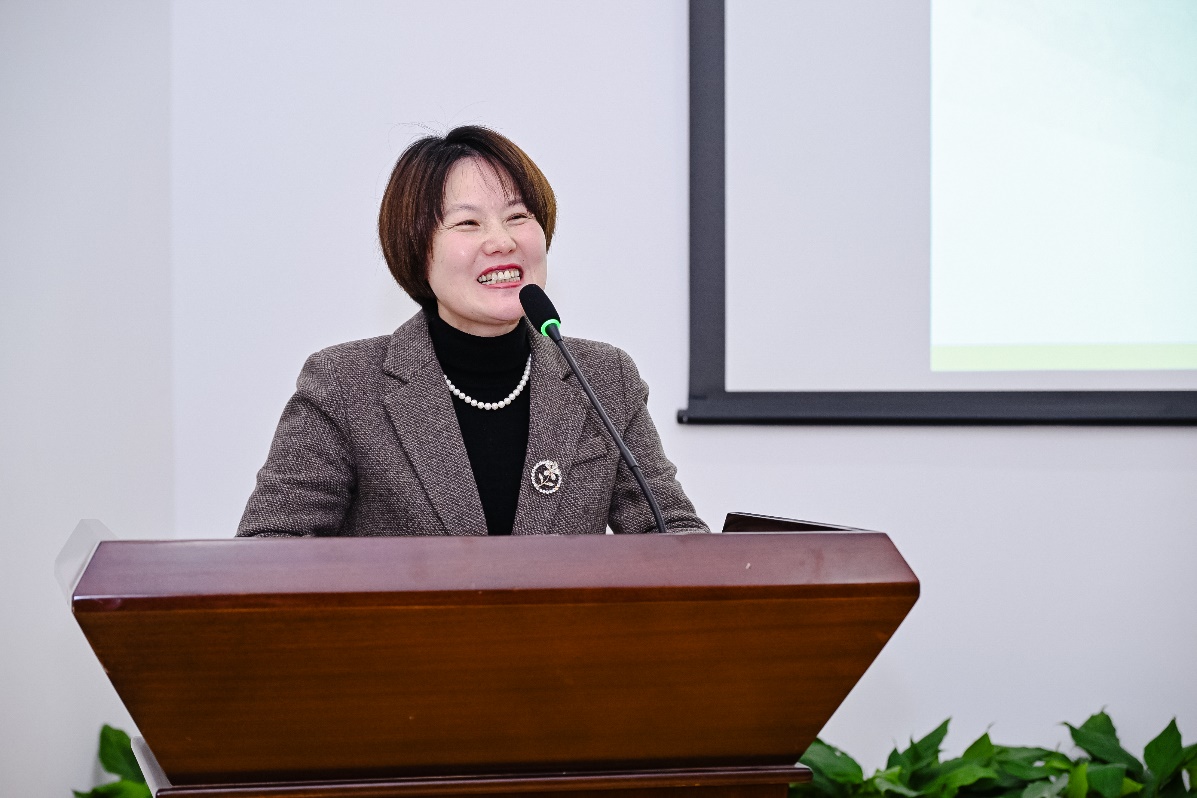
Keynote Speech by Jiang Mihong
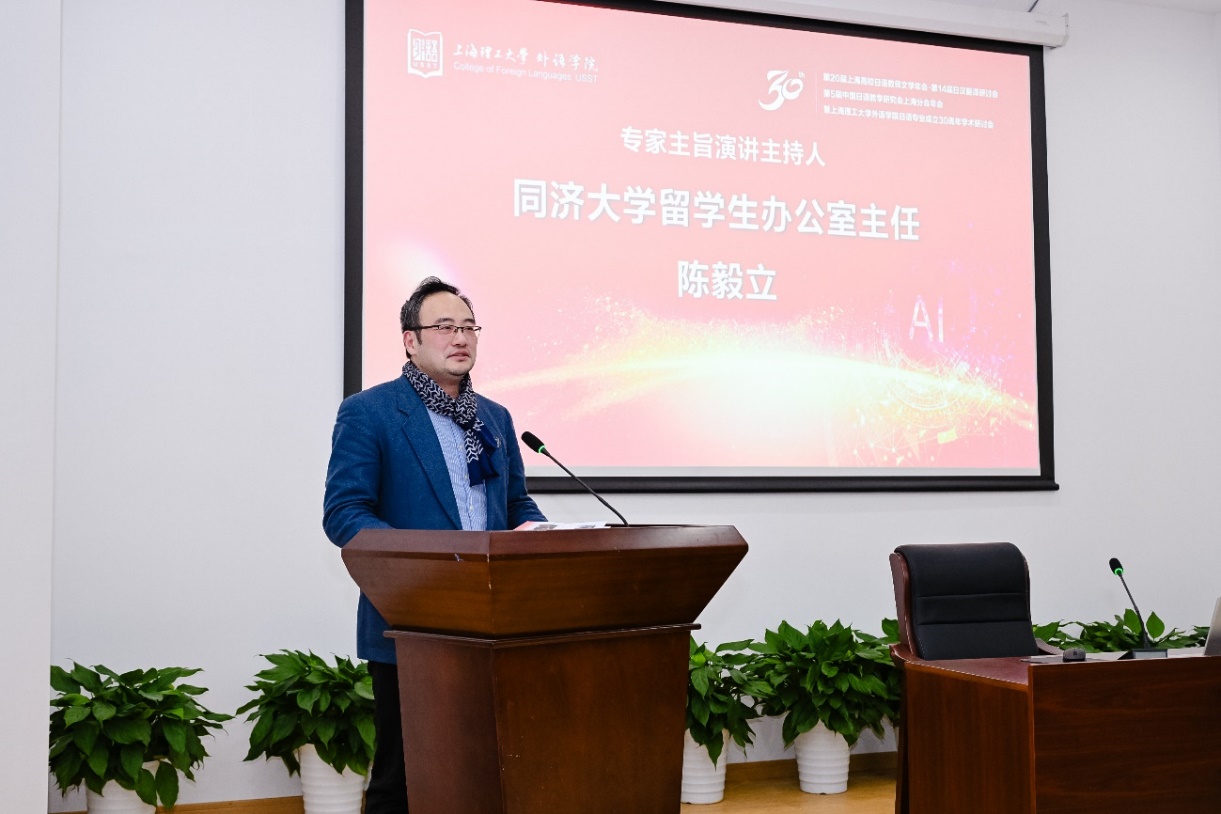
Keynote Speech by Chen Yili
Under the title of “Japanese Studies in the AI Era”, Professor Tan Jinghua walked through China’s research progress in Japanese literature, translation, and culture. Tan hoped that the Japanese studies community could prioritize the value in Japanese language education, promote the in-depth integration of liberal arts majors, renovate the education reform, and cultivate more high-level international talents.
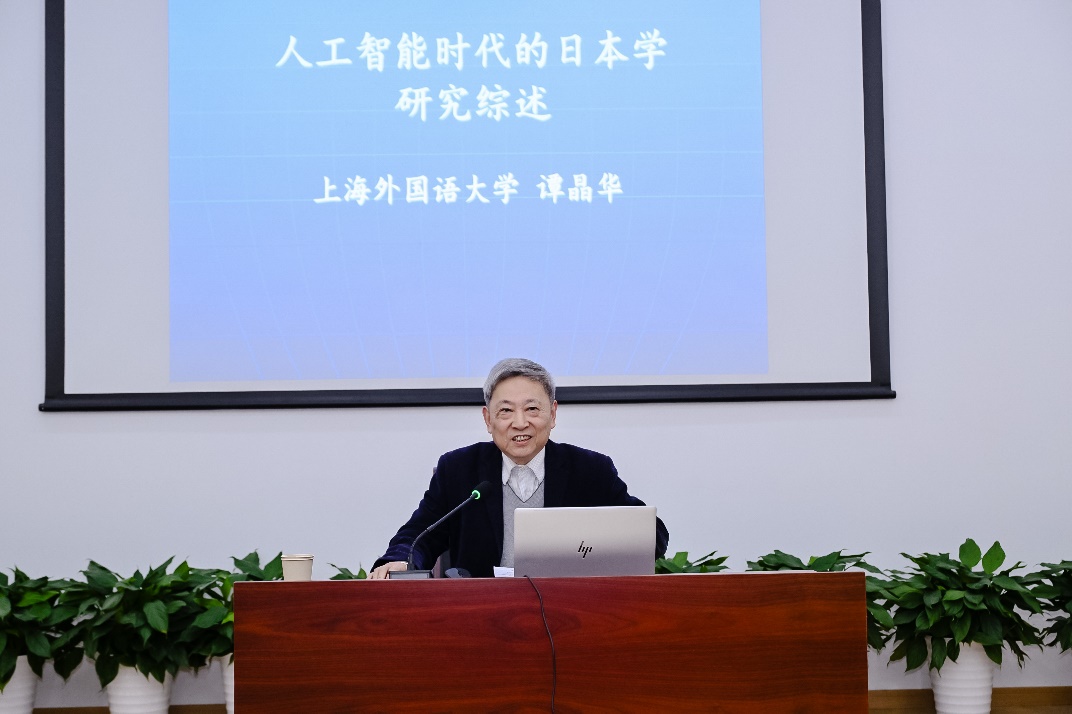
Keynote Speech by Tan Jinghua
On the title of “Area Studies in the AI Era”, Chen Youjun (Researcher of Shanghai Institutes for International Studies, SIIS) emphasized Japanese studies’ role in global research and advocated for AI-driven solutions to real-world challenges aligned with national strategies.
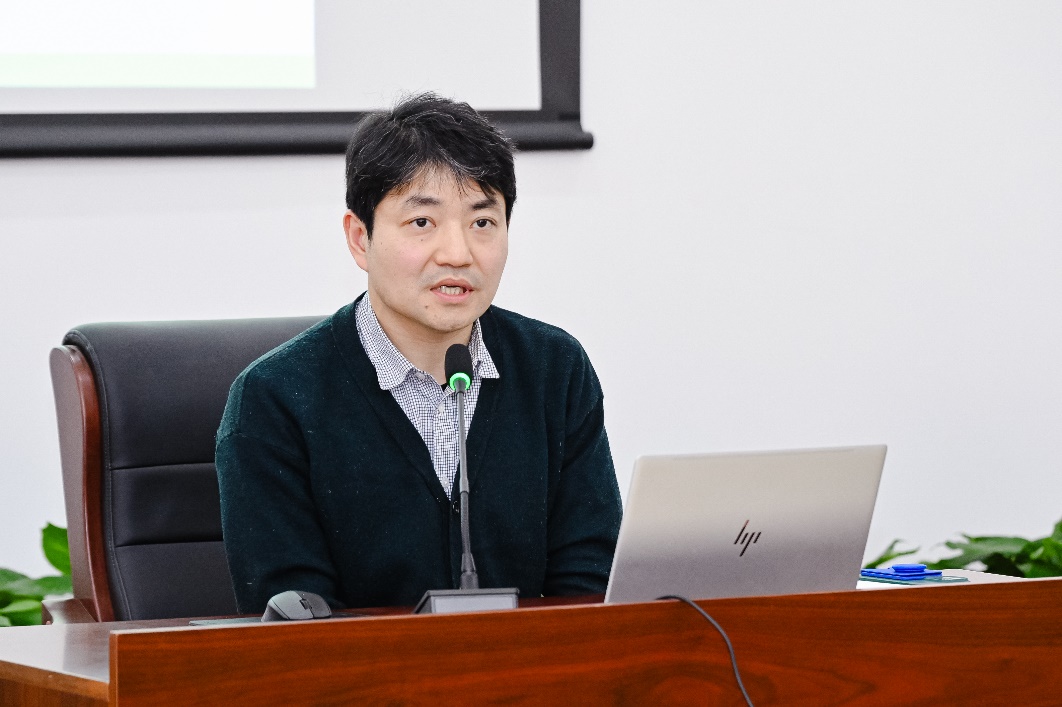
Keynote Speech by Chen Youjun
Under the title of “Practices and Explorations of National Academic Translation Projects”, Yang Benming (Director of the Department of Japanese, CFL, USST) gave an in-depth introduction to the national translation project from a macro perspective and suggested that foreign language talents should initiatively respond to the call of the country to tell China’s stories well, accurately convey the essence of Chinese culture and promote the exchanges and mutual understanding between Chinese and foreign civilizations.
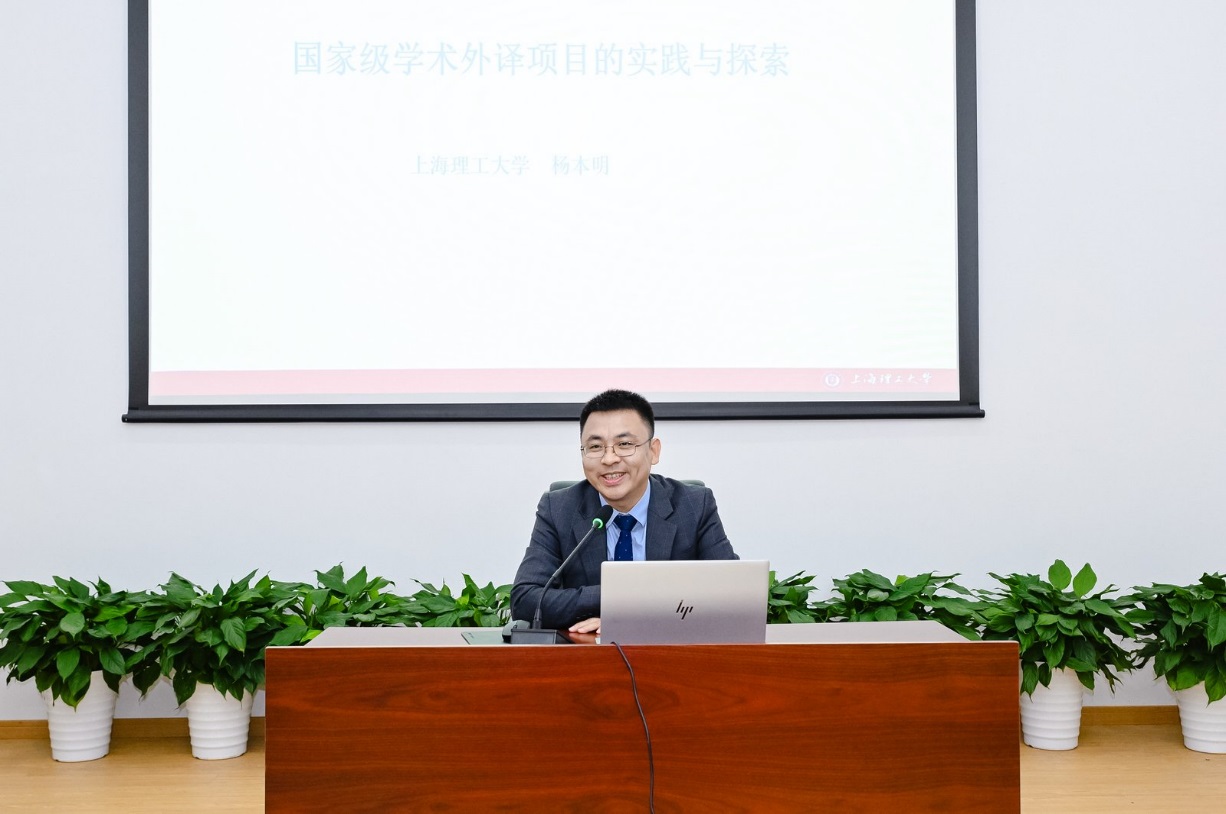
Keynote Speech by Yang Benming
The sub-forum comprised four sessions, focusing on the themes of linguistics, literature, Chinese Academic Literature Translation & Publishing, and area studies of the National Social Science Fund of China (NSSFC).
The “Linguistics Sub-forum” was co-hosted by Dou Xinhao (Vice Dean of the School of Education, SISU), Mao Wei (Deputy Director of the MTI Education Centre, CFL). Chen Zhou (a PhD candidate from the School of Foreign Studies of TJU) gave a research report. Experts and scholars such as Mao Wenwei (Vice President of CJEA Shanghai Branch), Cui Honghua (Head of the Department of Japanese of Shanghai Normal University, SHNU) and Chen Yue’e (Head of Japanese Department of Donghua University, DHU), engaged in a lively discussion on the communion and intercommunication in such fields as language, literature, culture and history and other disciplines. Wang Xiaohua, Associate Professor of SISU, shared her research experience in studying Chinese dialects by drawing on the theoretical approach of Japanese descriptive grammar. Liu Man, a professor of the Department of Japanese at USST, shared her experience of applying the National Social Science Foundation projects, saying that the research topics must be drawn by the national strategic needs, and strive to serve the development of the country and the society.
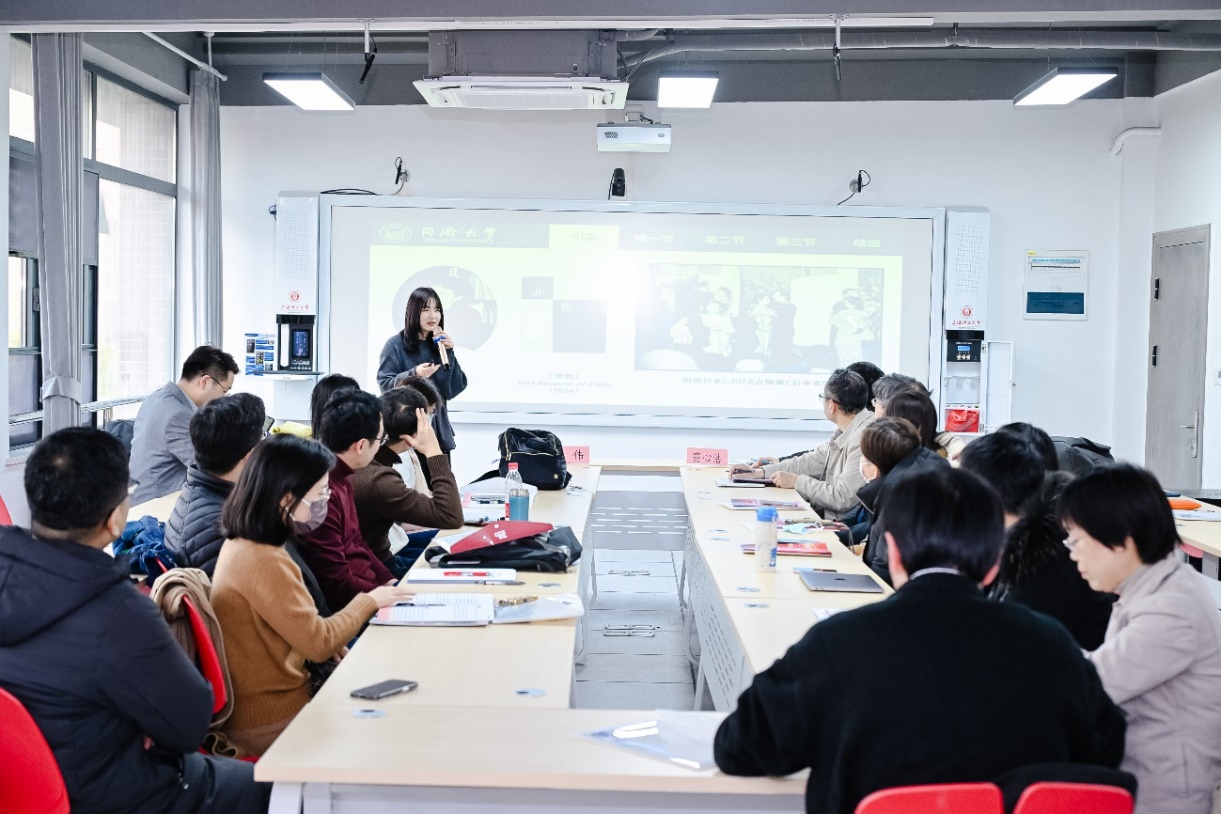
The Linguistics Sub-forum
The “Literature Session” was chaired by Gao Jie and You Haiyan (Director of the Department of Japanese, East China Normal University, ECNU). The session had a lively discussion on the application and integration of AI in foreign language teaching, translation practice and literary creation. PhD candidate Chen Yao reported her research on the topic of “Research on Artificial Intelligence Writing and Its Narrative Patterns - Focusing on ‘Are You an AI?’”. Chen argues that AI works are different from traditional static texts, and that AI-generated content is a product of writing as well as a meta-text learnt by an AI program, which can constantly mutate according to the instructions. Professor Tan Jinghua reckoned that the syllabi and translations generated by AI have a severe homogenization problem and do not pay enough attention to humanity. Professor Gao Jie suggested that although AI technology performs well in terms of text accuracy and professionalism, it is far inferior to human beings in terms of imagination and creativity. Professor Liu Xiaofang said that “no imagination is as wonderful as reality”, and that the AI-generated texts lack humanitarianism.
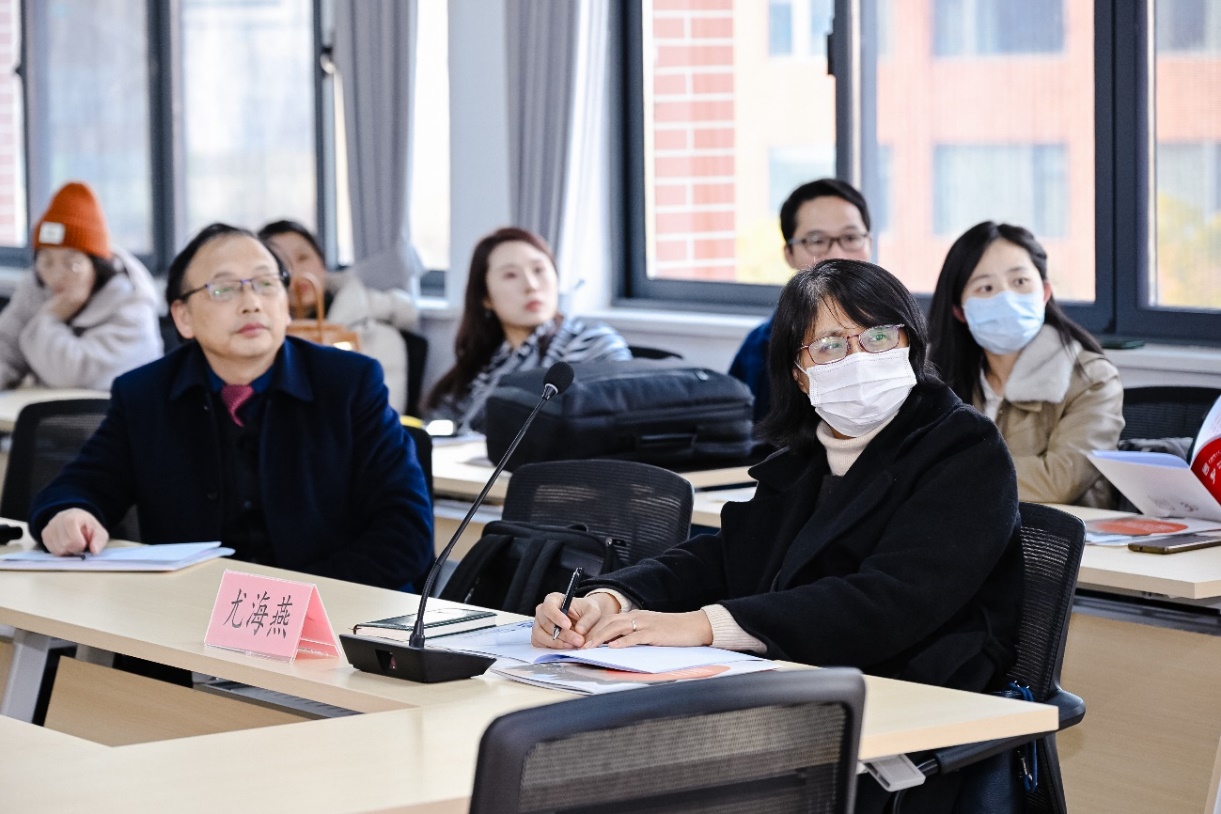
The Literature Sub-forum
The “Chinese Academic Literature Translation & Publishing Session” was co-hosted by Zhang Zhengjun (Vice Dean of the School of Foreign Languages of East China University of Science and Technology, ECUST), Tian Jianguo (the leader of the discipline in the Xianda College of Economics & Humanities, SISU), and Tao Fuwen (Associate Professor of the Film-Television and Communication College of SHNU). Tian introduced the principles of project application from the perspective of topic selection, publication liaison, team formation and division of assignment, introduction of experts in related fields, and mentioned the principle of reasonable use of artificial intelligence tools. Tao detailed the translation in films, television programs, games and other cultural works, taking the film Red Cliff, Postmen In The Mountains and the dissemination of the Genshin Impact (an open-world adventure role-playing game) in Japan as examples. Liang Haiyan (Director of the Japanese Department of ECUST), Jin Jingyu (Director of the Japanese Department of Shanghai University of International Business and Economics), and other attendees had in-depth discussions on the issues of selecting the source texts of translations, cooperating with publishers, and reviewing and proofreading target texts.
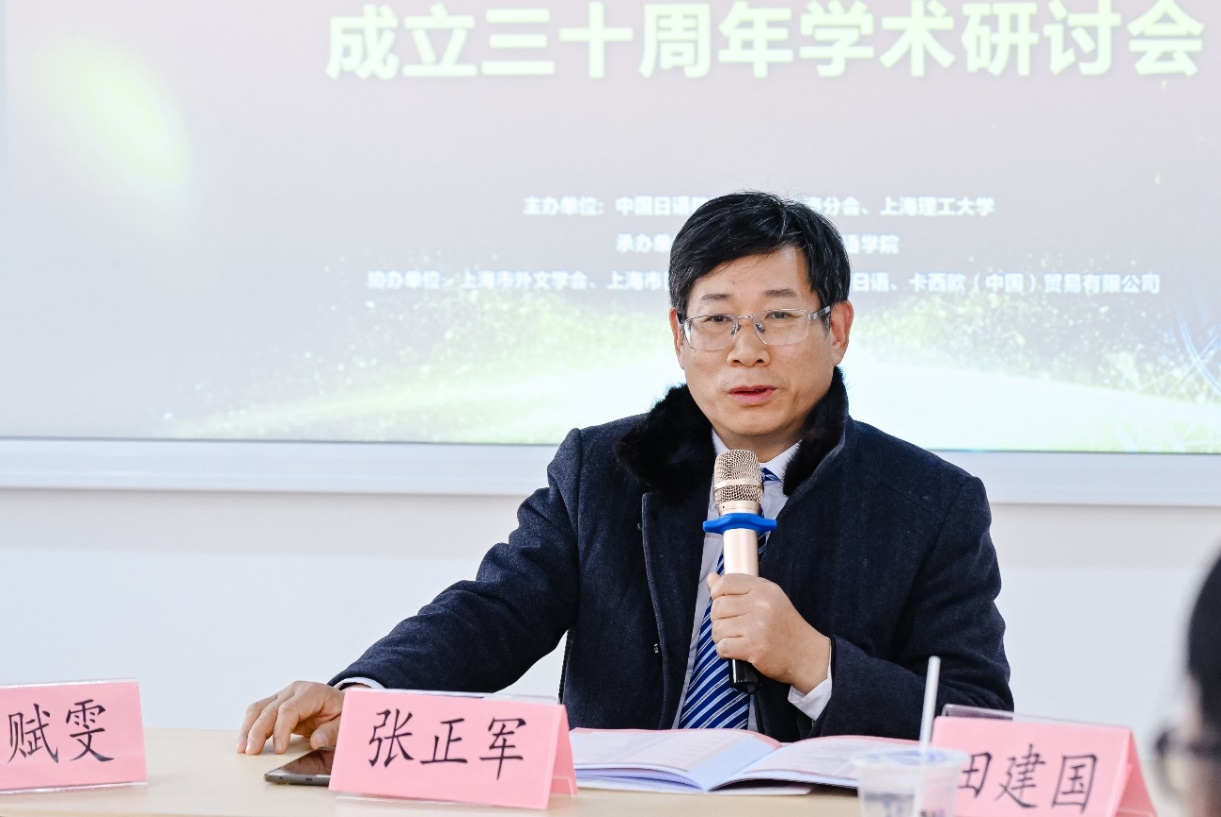
Chinese Academic Literature Translation & Publishing Sub-forum
The “Regional and Country Studies Sub-forum” was presided over by Ma Lizhong (Vice President of SAJS and Director of Chinese Association for Japanese Studies, CAJS) and Cai Liang (Researcher of the Department for Asia-Pacific Studies of SIIS). Ma summarized the difficulties and prospects of the current development of Japanese language research, and pinpointed that the research of regional studies should make the best use of its strengths and avoid its weaknesses, integrate the resources, and solve the problems of practical needs for the development of the nation, so as to achieve the goal of having what others have, and having what others don’t have. Cai pointed out that the key to interdisciplinarity is the appropriateness, applicability and fundamentality of the research methodology as well as a holistic view. To do that, we should learn from experience and lessons of Japanese interdisciplinary development and develop an awareness of serving the development of Chinese modernization.
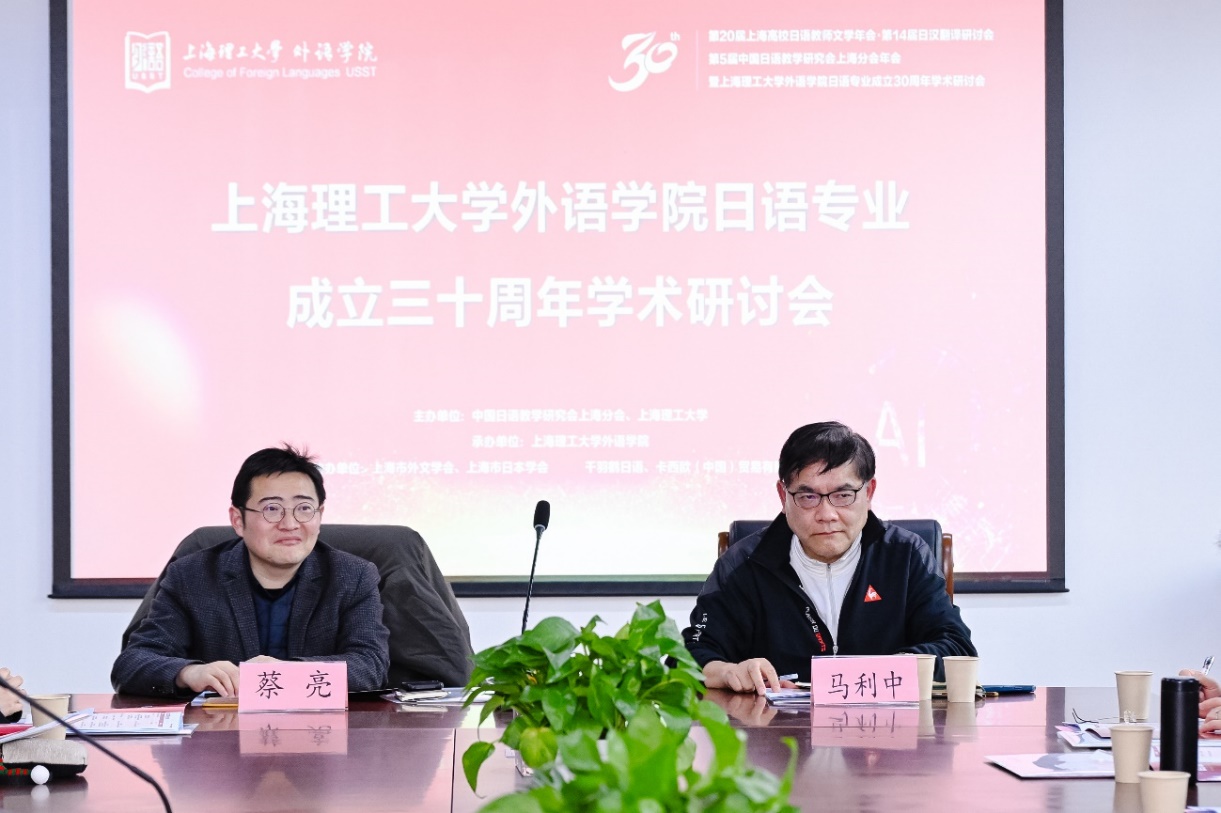
Regional and Country Studies Sub-forum
The closing ceremony was moderated by Zhao Yingbo (Director of the School of Foreign Languages, Shanghai University). Mao Wenwei made a summary that in the new era, the foreign language disciplines play an important role, and artificial intelligence gives a boost to the development of the disciplines and provides new possibilities for the talent cultivation.
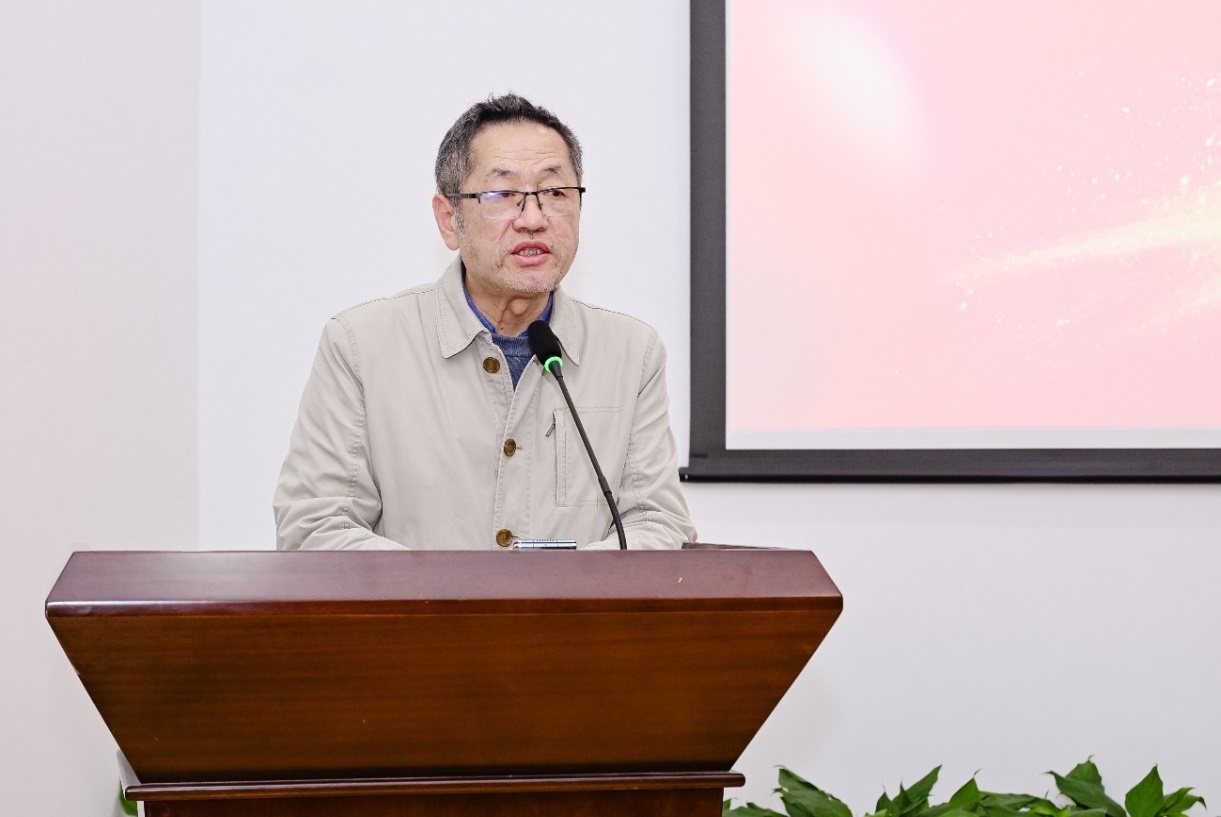
Zhao Yingbo, the Moderator of Closing Ceremony
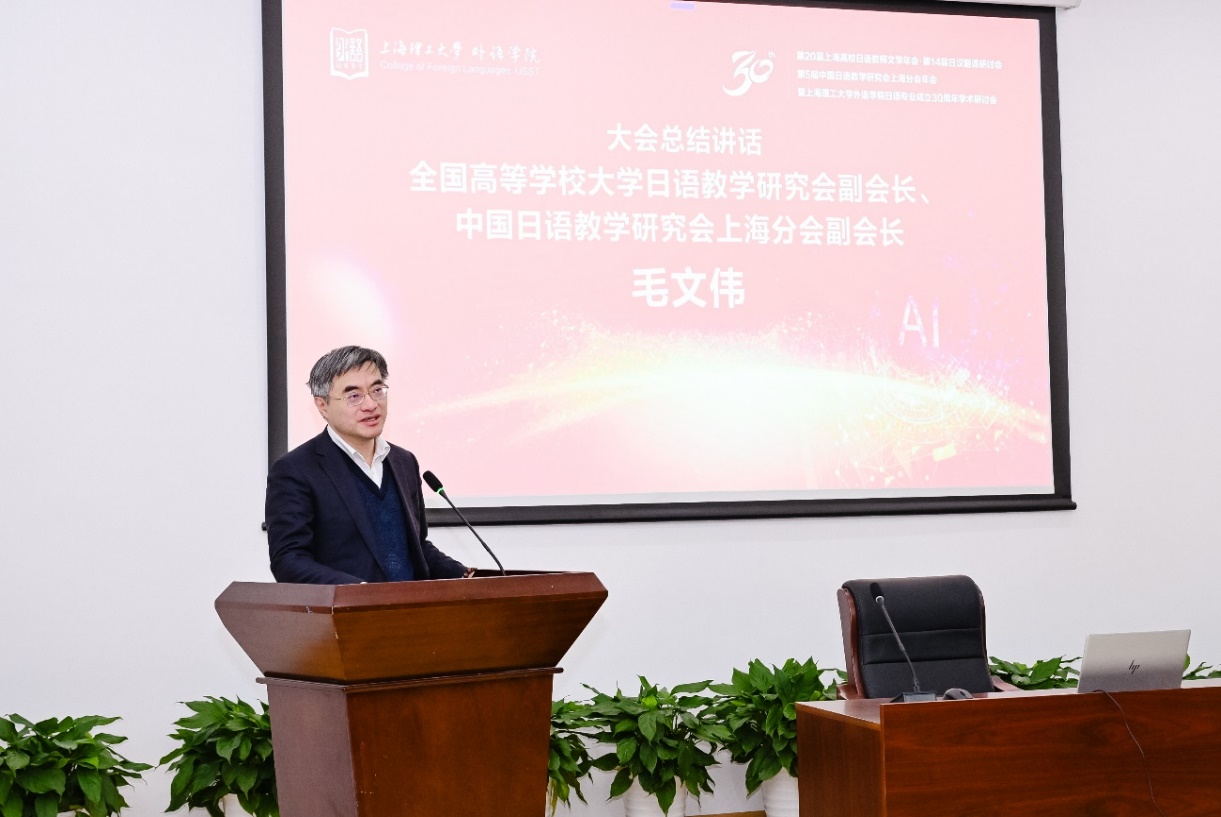
Closing Speech by Mao Wenwei
Attendees agreed that in the face of the opportunities and challenges in the era of artificial intelligence, it is imperative for foreign language researchers to build a close collaborative academic community, widely integrate high quality resources from universities, research institutes, enterprises and other sectors to promote innovation and enrich the connotation of foreign language disciplines in an all-round way, so as to expand the clout of the academic community, and to contribute to the development of foreign language disciplines.
